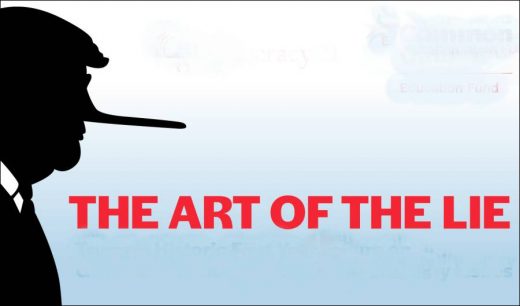The art of lying. Amongst the best actors of all time, Marlon Brando, who was screened 11 years after his death, speaks of his profession as “liar” in Listen to Me Marlon, directed by Stevan Riley. The “state of humanity”, which he transmits from his 200-hour sound archive, which includes his speeches, which seems to be a habit for years, is so sincere, so touching, so fragile that it is impossible not to be shaken by what you listen to, and not to feel sad about your existence.
In the 1950s, when his inner world was completely abandoned, from the youthful young boyfriend who came to New York without a penny in his pocket, he gave me what he took as a reasonable, logical, moral and wicked personality in the field of human rights. In this extremely intimate, yet honest narrative that stretches from struggle, from there to settling on a coral island in Tahiti and turning back to fame, Marlon reduces his entire career to being a good liar: “Acting is a lie to earn a living.
All I did was learn to be aware of this process. You are all actors. And besides, you are good players because all of you are liars… Whenever you say something you do not intend, you will be acting. You are lying for peace. You are lying for love. Some of us make money in return. If I was lucky and not a player, I would probably be a scam. A good scam.”
At the beginning of the documentary, Marlon welcomes the audience on a journey through Shakespeare, who always reveals the weaknesses of his plays and examines them in depth: “Tomorrow, tomorrow, then tomorrow, then tomorrow… . Melted gone candle. What is life you say: A shadow that plays, a poor actor who is fluttering on stage. No more sound when the game is over. It’s a noisy fable tale told by an idiot, fierce and meaningless. ” (Macbeth, V. Curtain, Stage 5).
You know, it’s not like that, Macbeth lies a lot, most of all. How he became dependent on power in an illegitimate way (by killing King Duncan) after taking power; It is not possible to evaluate his greed, who avoids any sense of compassion, justice and conscience, independently from the world he has built in his head. Perhaps the most important factor that allows him to continue the work he started in his destructive spiral, where he killed anyone he saw threatening his power, is perhaps his lies. Meanwhile, it gradually breaks away from the truth, and with this break, their fear increases. “My brain is full of scorpions,” he says. As the truth loosens, it drifts into paranoia.
The master liar is said to have a good memory first, and what Macbeth cannot do is keep his connection with the truth. The result of his self-describing intimacy is that what makes Marlon a “good” actor is that he can keep his connection with the truth. Macbeth, on the other hand, cannot go beyond being the “bad” tyrant of the order he founded on lies, as in many examples written by history.
A Thousand Faces of the Hero
If the lie had a single face, just like the truth, we would be more amicable because the opposite of what the liar said would be absolute truth. However, it has the opposite of truth, thousands of faces and an infinite space. (Montaigne, Trials.)
In the first year of my assistant, I rebelled against my teacher, Leyla Zileli, about a patient: “There is not a single session that I do not feel deceived or feel deceived. Does he enjoy fooling me ?!”. As usual calm and wise he said, “I think you’re overlooking your own truth.” That day, however, he conveyed a very important piece of information that I will understand over time: Lying is always an emotionally charged form of communication that we have, though indirectly, acquired insight about, and regardless of its function, it always contains some truth.
Truth is about the quality of the person’s inner world in which he acquires the representations of objects in his own spiritual field. If the object of the interior is a kind of object in which honest and open communication is felt impossible, the therapy area will inevitably be the place where this quality is put on the scene, the therapist will feel imprisoned in an unrealistic scenario. Relations in daily life will not be different from this either.
Sartre says the existence of the “other” that makes the lie necessary. In this context, the lie is the product of the compromise difficulties we experience regarding the distance in our relations. The linguistic origin of truth and lies gives insight into the possible functions of lying. The Greek etymology of the true word is “open”, while the lie is “curved / crooked / curved”. These linguistic origins reveal how the lie is a spiritual diversion method. Lies allow the person to walk around the truth. Lying here indicates the difficulty, even the danger, of establishing an open and direct relationship with one’s objects. In this context, lie is a necessity to overcome one’s objects (others) spiritually. So he wanders off their coast and avoids colliding with them “head to head”.
Psychoanalyst Alessandra Lemma, whose ideas I used in preparing the article, reminds us of Sartre’s suggestion that in addition to Sartre’s word, Jankélévitch suggests that lies are a strategy of survival in the world of “dull, discreet, biased and mysterious creatures” we live in. He also divides the introduction part of his article into Darwinian examples, which provide evidence of the evolutionary advantage of his ability to deceive. Indeed, some people cling to the lie as the only way to secure spiritual survival due to their selfobject (intrinsic object representation) setup.
In a sense, this is an effort to overcome the pure doubt created by mentally inaccessible “dull” objects and anchor into certainty and clarity. In this way, it is under the control of the object in an all-powerful manner, whether it is based on lie, whether it is waived from the real inner object that is incomprehensible or inaccessible to itself.
The lie is at least certainly known by the self: When the liar lies, it creates the illusion that the other can control what to believe and think, and therefore “knows” what is in his mind. Saying that he earned his life by lying, Marlon explains that his mother was alcoholic and had to relate to his drunk state during his childhood. If drunkenness is one of the most spectacular forms of dullness.
Next Page: Spiritual dynamics of lying.
Visits: 71



